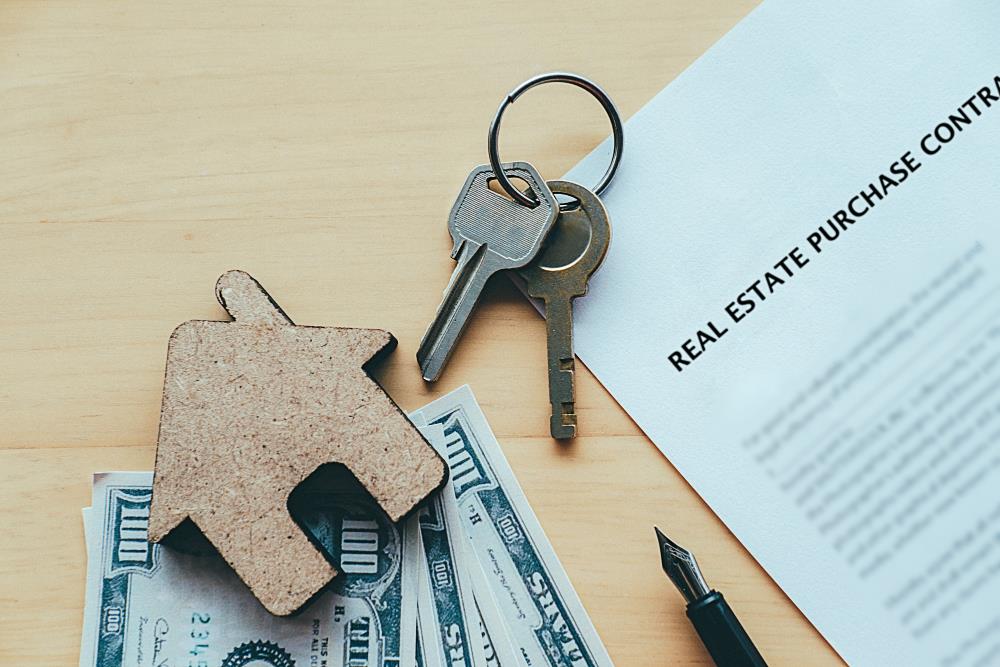Basics to Real Estate Investing for the Long Term

Sponsored by Hei Biz
Real estate investing is a great way to build wealth. It requires a lot of work but can also be very profitable. This article covers some of the most critical aspects of buying and managing rental properties so that you can avoid common mistakes made by novice investors who need to know what they're doing - or at least know when something needs to be fixed with their investment strategy!
Real estate investors buy, sell and manage residential and commercial properties for profit. They can do this by understanding the market, having a good deal on a property, and knowing how to maximize their profits from that property once it's purchased.
Follow Your Goals
The first step to following your goals is knowing what they are. To do this, you'll have to take some time and think about what you want from life- what lifestyle would make you happy? Then, once you've come up with a few ideas, start thinking about how those could be achieved. For example, if one of your goals is to own a home in the city by 202X, then look into different neighbourhoods where houses are more affordable than other parts of town (or even cities nearby).
Once you've identified some potential options for achieving these goals, they must be specific and measurable so that everything is clear as to whether or not they were met by the deadline. For example: "I want my own house by 202X" doesn't give much information; however, "I want my own house within walking distance from downtown Cleveland" does because now we know exactly where we need our new abode!
Finally, remember that consistency is critical when working toward any long-term objective--so stick with it!
Do Your Research
To get started, you first need to research the market. This includes understanding the competition for each property and where the best deals are found. You'll also want to check out crime rates in different neighbourhoods to determine which areas are safest and most attractive for investment purposes.
Next up: Research the property and its neighbourhood history, demographics, and crime rate (if applicable). You should also consider whether or not there are amenities nearby--like schools or parks--that might be essential factors in your decision-making process later on down the road when determining how much rent a tenant would be willing to pay each month on top of their mortgage payment every month while living at this particular residence as well as whether or not this particular house could potentially increase in value over time due its location within proximity from other businesses/shopping centers nearby so that if someone wanted to sell off their home after living there for a while, then chances are good enough based off past trends showing similar homes selling within same price range etcetera.
An example of a property with good potential investment value would be the upcoming Tembusu Grand in Singapore. Located along the prime district of Singapore's East Coast and shops and amenities, such properties give a potentially substantial upside for investors.
Evaluate Each Property
When you are evaluating a property, there are several things to consider:
- Safety is one of the most critical factors affecting your return on investment (ROI) and your well-being. Ensure all electrical outlets are working and no wires are exposed or frayed. If an HVAC system is in place, ensure it works properly and has yet to be tampered with by previous owners or tenants. The roof's condition should also be inspected; look for corrosion and leaks from rainwater runoff and signs of structural damage caused by tree branches falling onto the roof during storms or high winds.
- Value refers not only to how much money will be made off selling this particular piece of real estate but also what kind of return on investment (ROI) is possible based on current market conditions in general--and those expected going forward--as well as other factors such as location, condition/maintenance issues related specifically toward this particular property itself versus others within its immediate vicinity area(s) where similar properties have sold recently at prices ranging between $xxx-$yyy per square foot depending upon type style size etcetera...
Why you should hire an attorney
An attorney can help you with various aspects of investing in real estate. They can advise you on the best way to structure your deal and handle any legal issues that arise during the process, such as drafting contracts or resolving disputes between partners.
How much will it cost? A reasonable attorney will charge anywhere from $75 to $200 per hour depending on their experience level and how much time they spend working on your case (for example, if they come up with a new strategy that saves time or money). An average retainer fee is between $1,500-$3,000 per month.
Insure Each Property
Insurance is a must. It would help if you always had insurance on each property you own, but it's essential to have the right amount of coverage when the value of your investment is high. Check with your mortgage company and attorney to find out what kind of insurance they require for their loans and contracts. Make sure that you get an estimate from an independent agent before signing any agreements so that there are no surprises later on down the road when it comes time for renewal or replacement policies (or, even worse: lawsuits).
Maintain and Manage Each Property
- Make sure you are aware of the property's condition and any repairs that need to be made.
- Keep track of maintenance costs, including capital improvements and operating expenses.
- Be aware of the property's tax implications (e.g., capital gains, depreciation).
- Be aware of the property's insurance implications (e.g., fire/flood insurance).
Know the Tax Implications of Real Estate Investments
- Taxes are a significant consideration when investing in real estate. Understanding how they work and how you can minimise your tax burden is essential.
- A good accountant is essential for any real estate investor, as they can help you find deductions you may not have known about, file your taxes correctly, and advise you on strategies for reducing future tax bills.
- If you invest in rental properties or any other kind of real estate business (including flipping houses), keep good records because it will make it easier for your accountant when they file next year's taxes!
Find a Good Tenant
To find a good tenant, you must know what makes a good tenant. There are two main factors:
- Will they pay rent on time?
- Will they take care of the property and keep it looking nice?
You can also ask yourself if your potential tenants will be able to afford the monthly payments (including utilities) and whether they have enough references from previous landlords or employers.
Takeaway:
- Real estate investing is a long-term business.
- Real estate investing can be profitable but requires time, effort, and patience.
- Real estate investing may be emotionally draining because of the amount of work involved, but if you have the right mindset and plan for success, you should be OK with this aspect of your business plan.
- My Life Abroad -
A selection of expat stories

"A fun compulsive read!"
J. Matcham, Amazon
"I strongly advise people ready to live abroad to read this book!"
Patrice, Amazon

 The Ultimate Guide: Buying Real Estate as an Expat
The Ultimate Guide: Buying Real Estate as an Expat  How to Avoid Real Estate Scams
How to Avoid Real Estate Scams 5 Ways to Overcome New Expat Housing Challenges
5 Ways to Overcome New Expat Housing Challenges Global events on real estate markets: are they connected?
Global events on real estate markets: are they connected? Private Tuition: A Priority Among Expat Families for Their Children
Private Tuition: A Priority Among Expat Families for Their Children